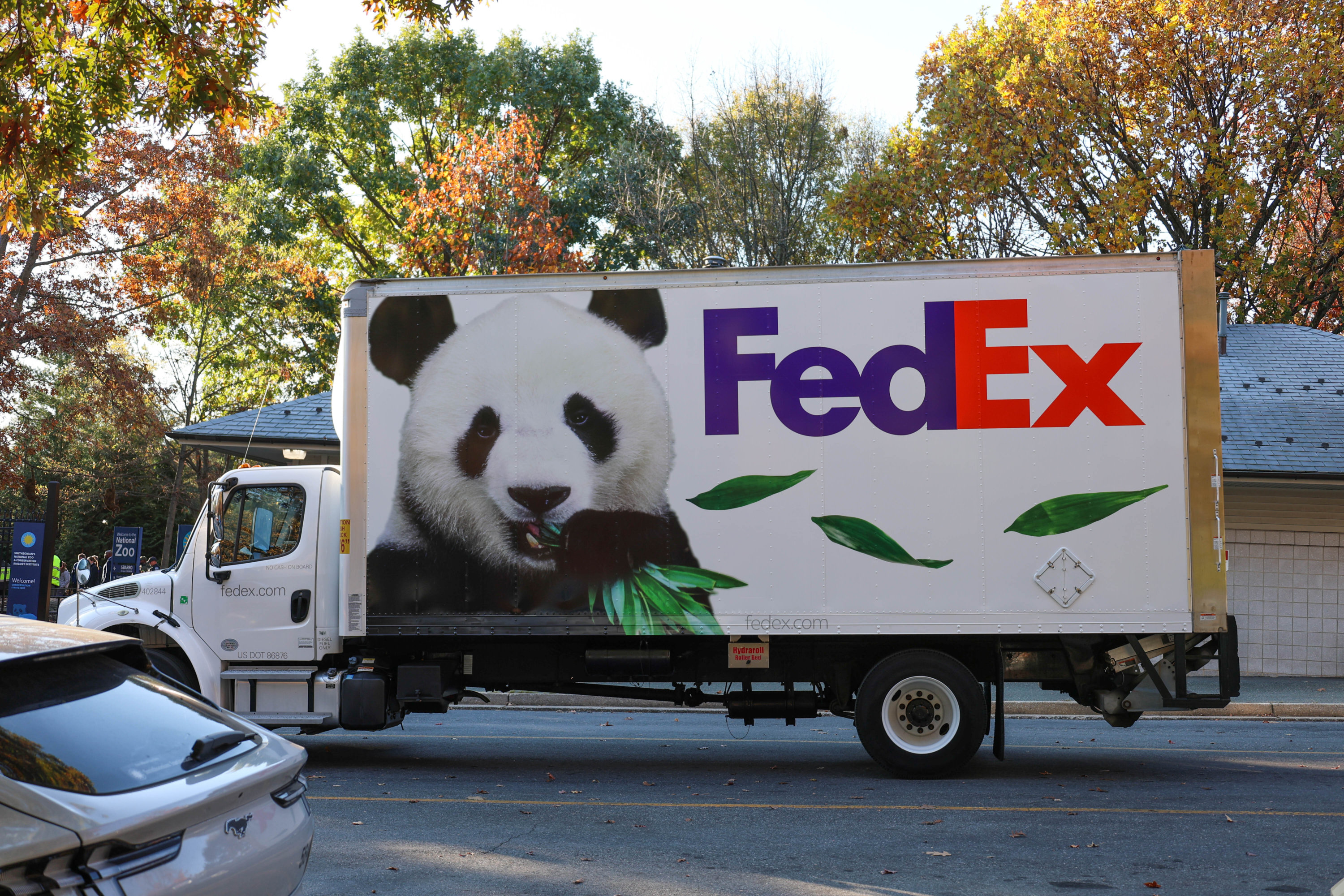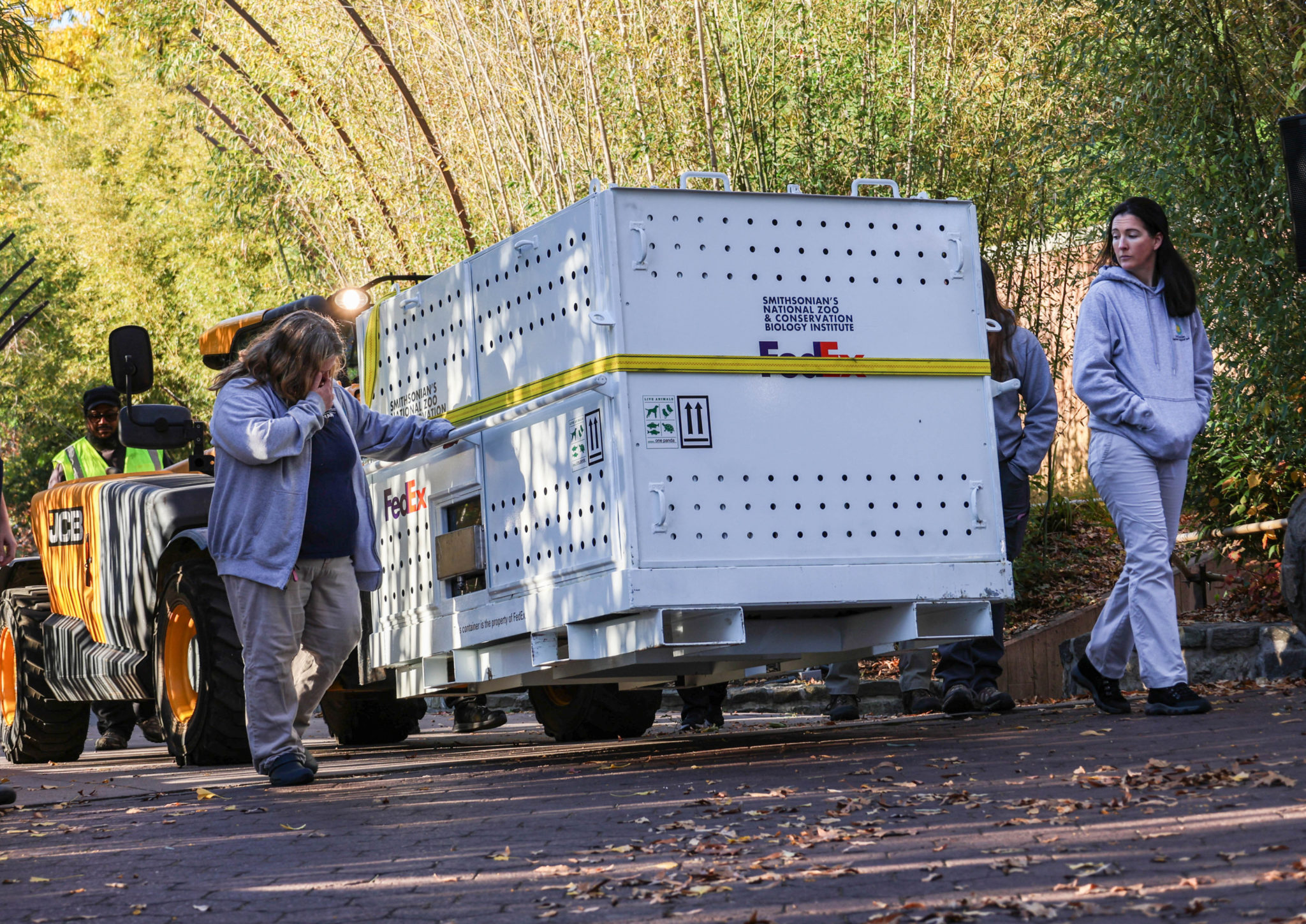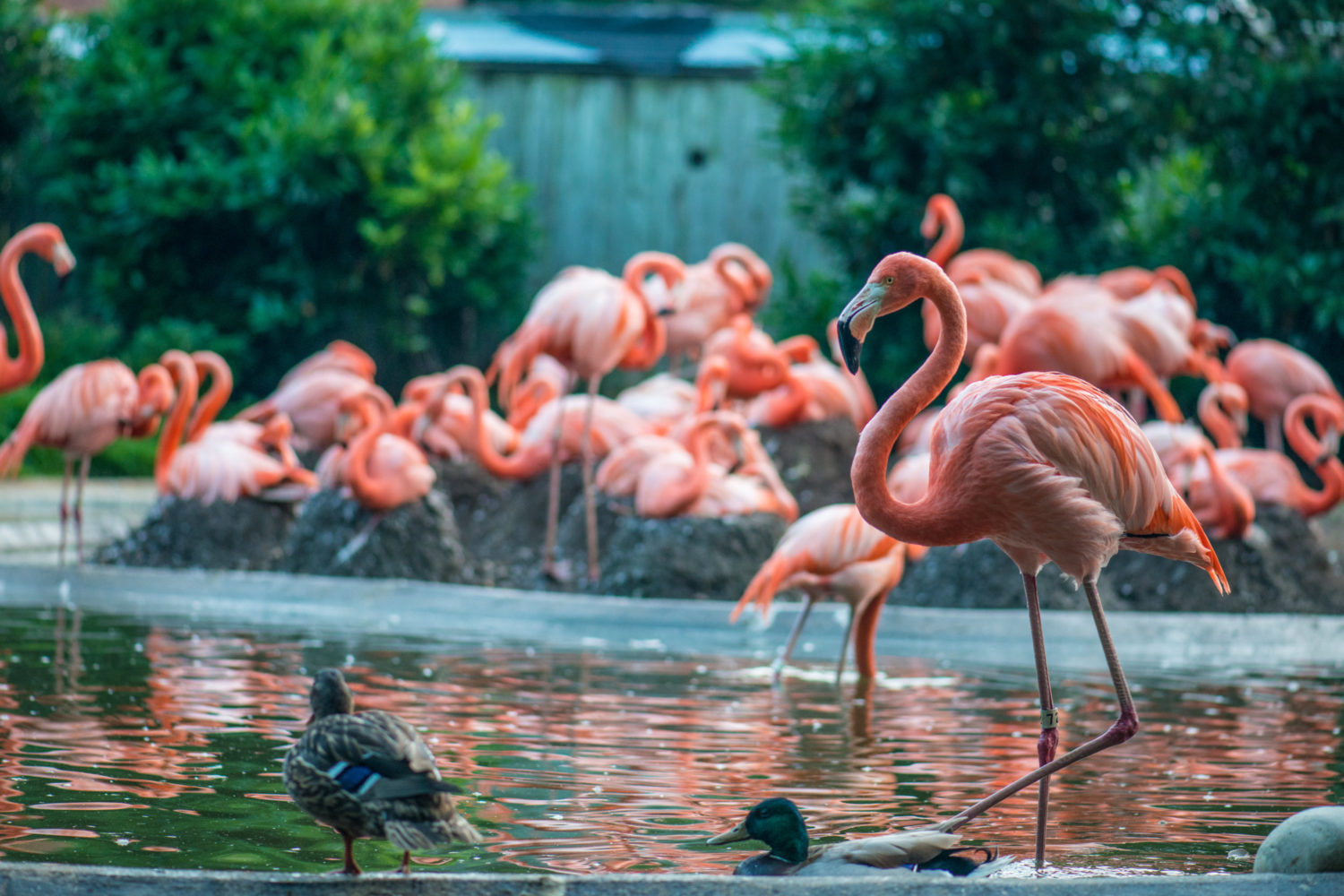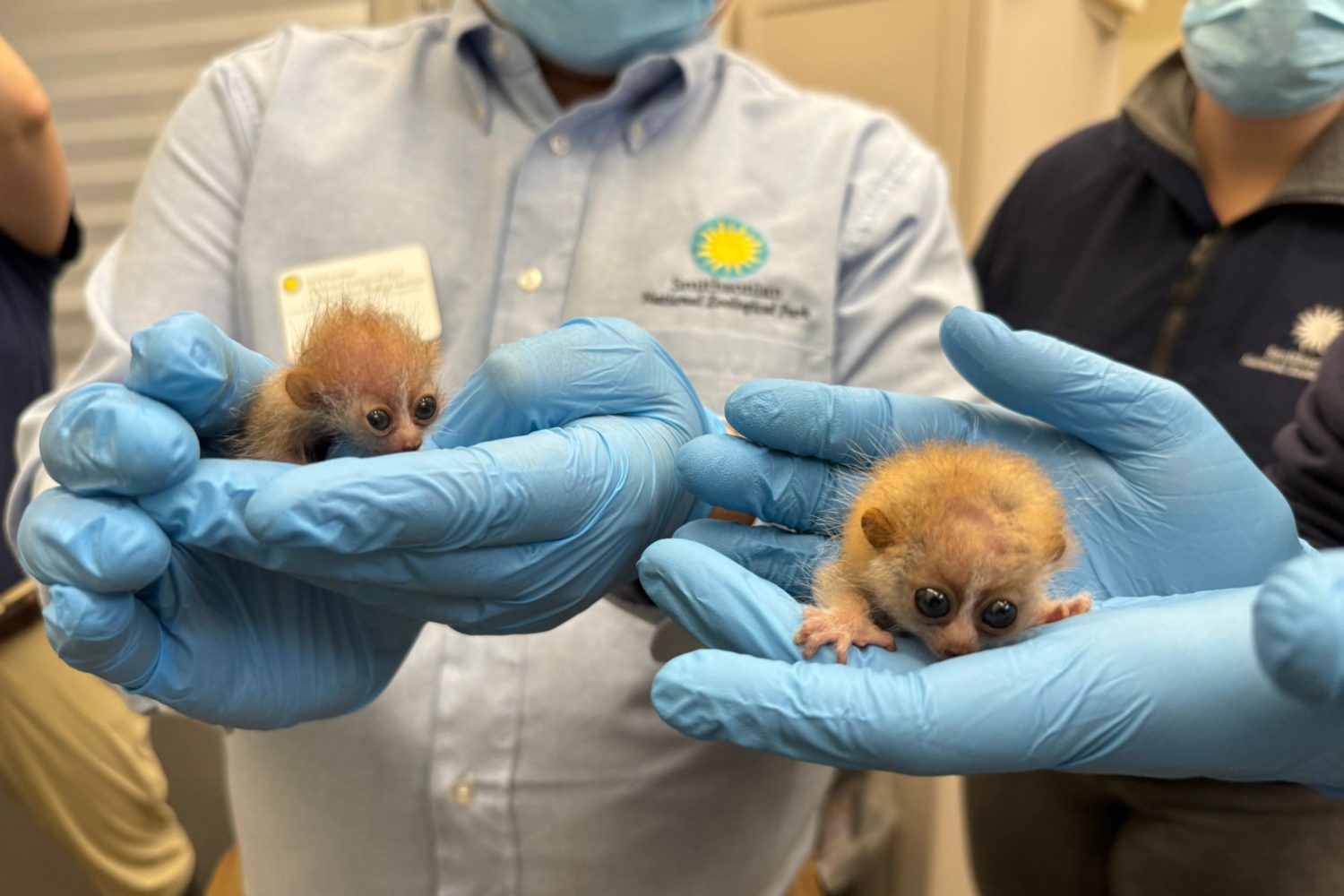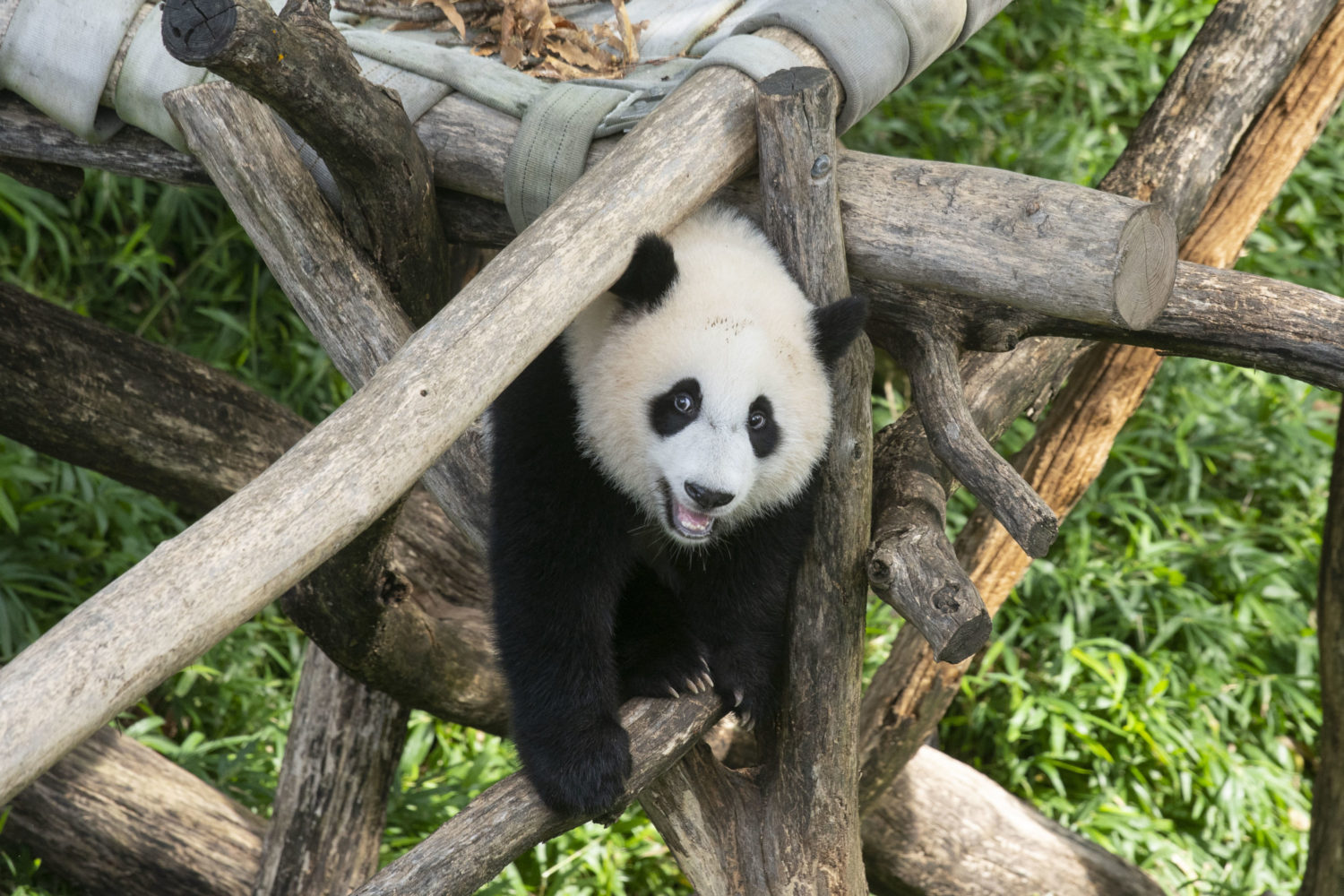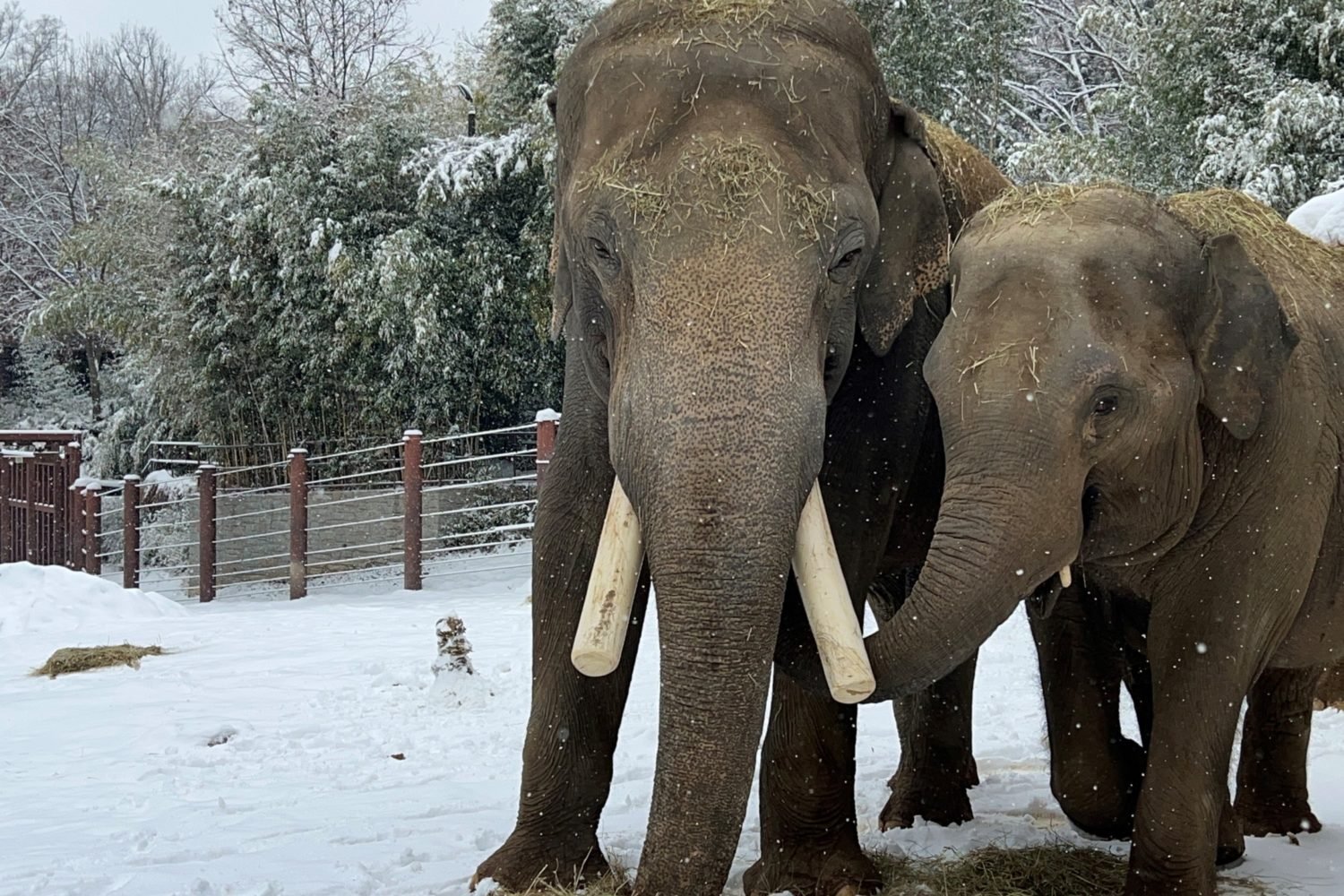When you’re sending giant pandas to China, the first thing you need to pack is bamboo. A lot of it, in fact. That’s 220 pounds of bamboo, a press representative for Smithsonian’s National Zoo told about four dozen members of the press Wednesday morning, as keepers in gray sweats, men in high-viz vests, and a forklift carried piles of the pandas’ dietary mainstay toward trucks waiting to transport DC’s famous pandas to Dulles Airport. From there, they’ll fly on the “Panda Express” to China, where they will remain.
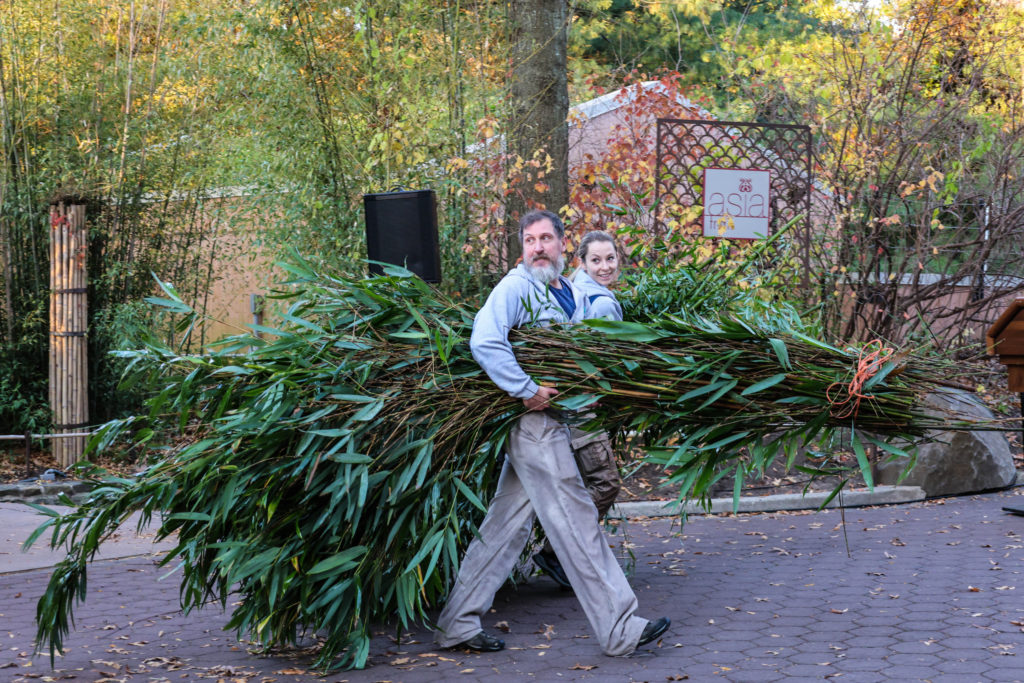
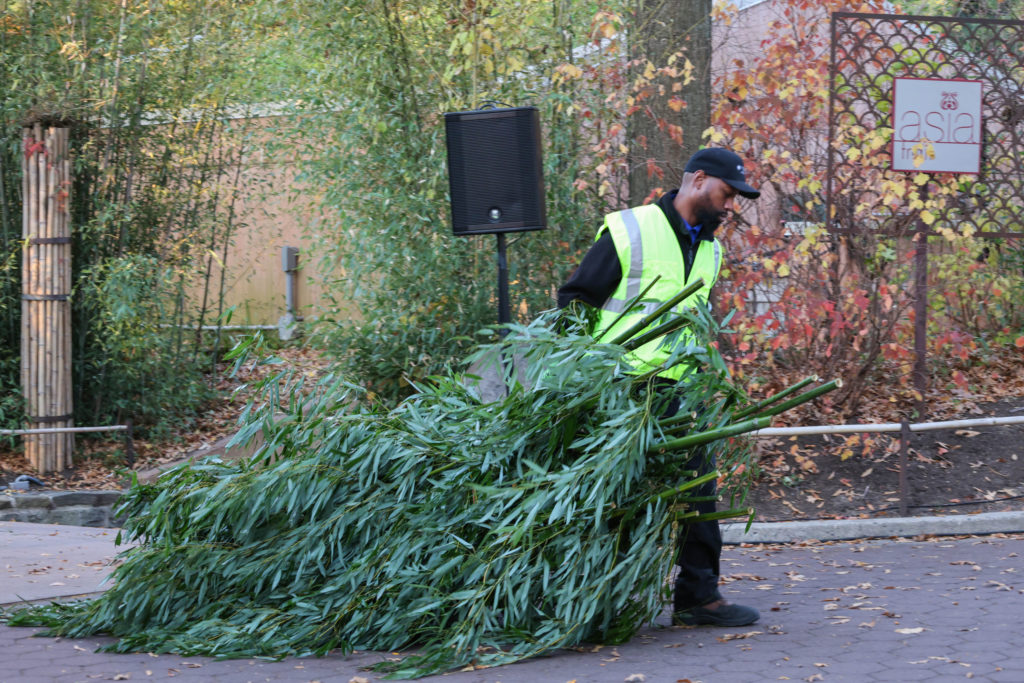
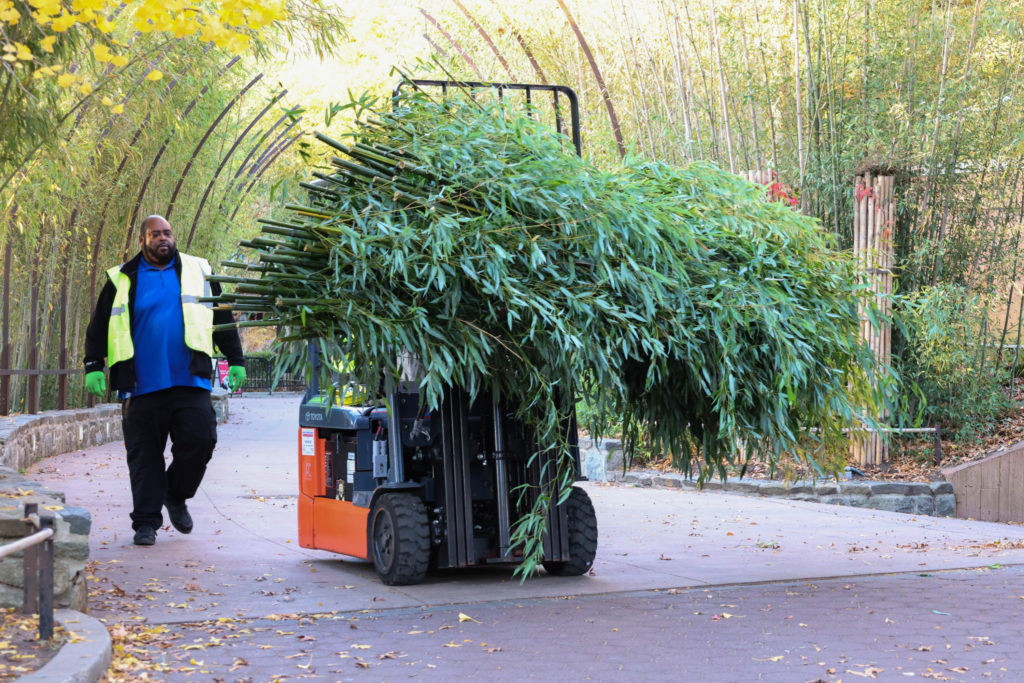
Media gathered outside Panda Plaza early on a cool November morning to watch the pandas roll up the ramp from the David M. Rubenstein Family Giant Panda Habitat. However, we weren’t invited to watch the pandas enter the crates they’d occupy until they arrived in China—this was strictly a watch-boxes-roll-by assignment. So we parked ourselves along Olmstead Walk outside the gift shop, Sbarro, and Dippin’ Dots stands off the plaza and waited. Even the appearance of a plastic tub of apples seemed historic.
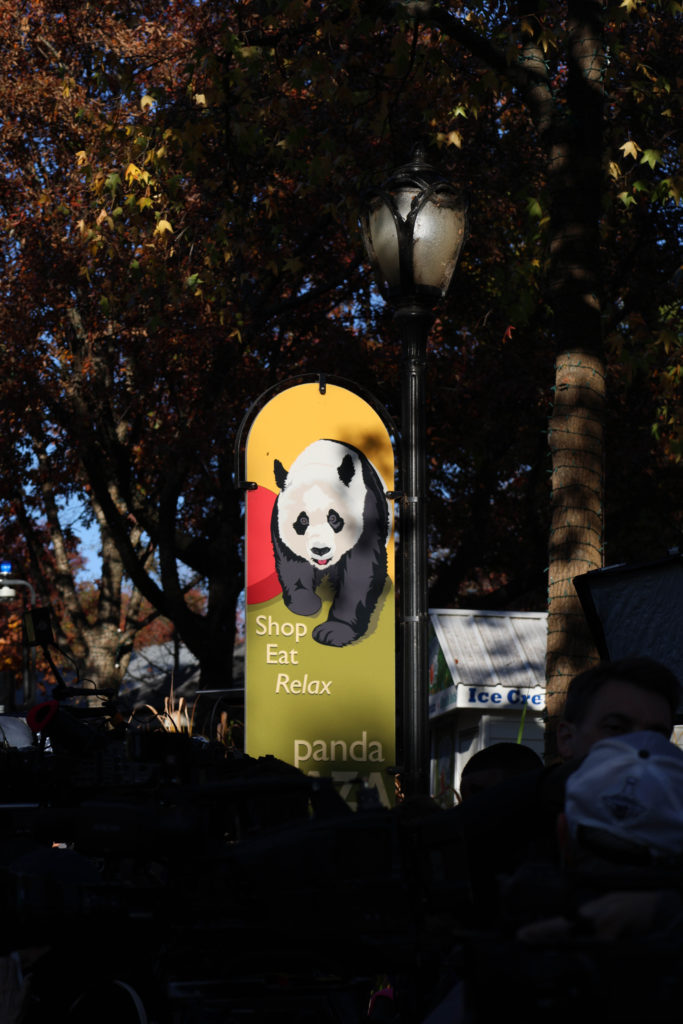
As the sun broke through the bamboo that lines the walkway to the panda habitat, one national TV reporter rehearsed her standup report several times until New York told her she was live, at which point she calmly and thoroughly nailed it. She reminded viewers that they could see the last pandas in the US at Zoo Atlanta until early next year.
Finally, a whirring noise announced the first crate, which carried Mei Xiang, whose achievements include giving birth to seven panda cubs while at the zoo. She rolled up atop an orange vehicle, a team of four keepers at her sides. Then zoo director Brandie Smith appeared alongside Xu Xueyuan, minister at the Chinese embassy. “Everyone keeps asking me how I feel,” Smith said. “And this is a hard morning. It’s been a hard week, and it’s been a hard morning.” But also, she said, it was a “moment of joy,” because the pandas’ departure represented “one more step in 50 years of a successful giant panda conservation program.”
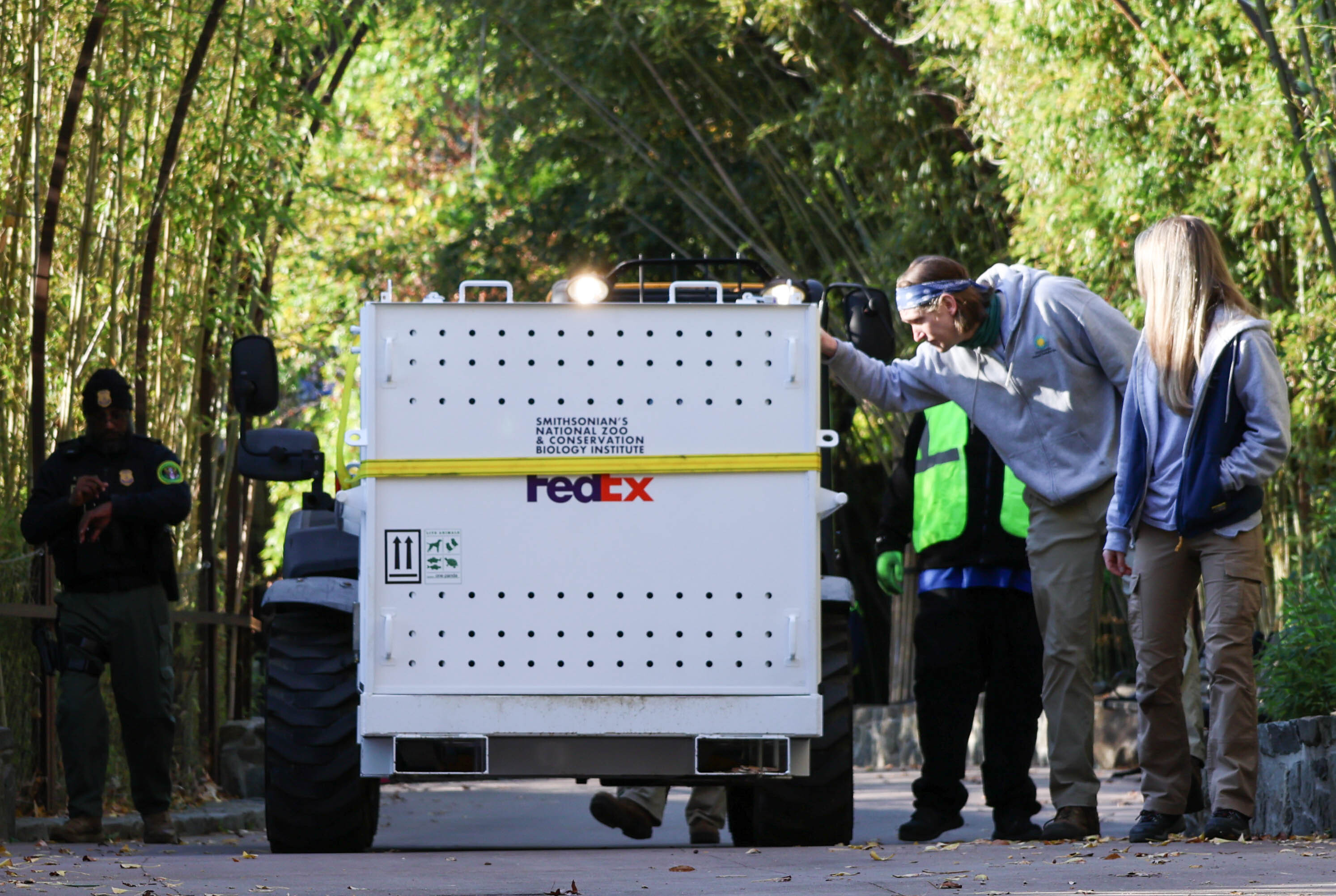
There’s no immediate plan for pandas to return. The zoo is betting they will be back—it will use the panda-free period to rehabilitate their enclosure and add new features like a climbing wall. “Please know the future is bright for giant pandas,” Smith said. “We remain committed to our program and we look forward to celebrating with all of you when pandas can return to DC.”
Xu was careful not to promise anything when she took the lectern. She praised the zoo for its “high standard facilities,” as well as its “adequate supply of bamboo, which is very, very important.” She bid them hello and goodbye: “As a diplomat in Washington, I say to them: Goodbye, and bon voyage. As a Chinese government official. I say to them: Welcome back.” And she said that while the pandas “belong to China,” they also belong to the world.
Not long after, Tian Tian rolled by, followed by cub Xiao Qi Ji. Outside the zoo’s gates, about two dozen people waited, cameras and phones aloft, to see the FedEx trucks, panels emblazoned with photos of pandas, that would take them to Dulles.
